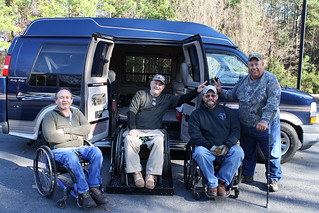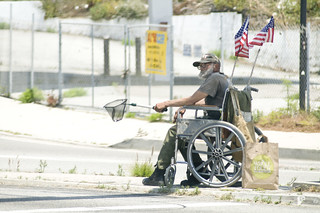(5/16/2013) – Soldiers returning to war can suffer from many physical and mental burdens, and providing continuing care for veterans is one of the most important commitments that government and social services can make. But the myths, misconceptions, and plain rumors that surround who is eligible for assistance and how to best go about getting it can often prevent injured and disabled veterans, as well as those with PTSD, from seeking the help they need. The Veterans Health Administration of America has over 1,700 care sites in the country, making it America’s largest integrated health care system. Far more veterans are likely to qualify for medical assistance through this program than most people commonly believe.
1. You do not need to have been injured in the service.
There were around 32,000 serious injuries reported during the entirety of the Iraq War, and yet the VHA serves 8.3 million veterans a year. That fact alone makes it clear that you do not have to be wounded in military combat to be eligible for veteran care. Anyone who served in the military and was honorably discharged will probably qualify for assistance, even if they served during peace time. It’s also untrue to say that VA care only applies to service-related injuries or disabilities. You can continue to use your hospital or outpatient veterans’ health care for any ailment, but many procedures unrelated to the service will have a copay. Filling out an application is a surefire way to know what you qualify for and whether you can receive extra combat veteran benefits or other considerations.
2. You can use VA care and private health care at the same time.
Many veterans mistakenly believe that they have to choose between veterans care and their own doctor, but this isn’t actually the case. The VA Health Eligibility Center encourages veterans to receive solely VA care, but they are willing and able to work together with your physician to provide dual care. When the lines of communication are open about your condition and your needs, it’s easier to make sure you’re getting the help you need. Plus, the VA doesn’t usually provide care for family members, so your children and spouse are likely covered by a different health plan already.
3. VA care is not dependent on your income.
If you have a serious injury or disability that is connected to your service in the military, you can receive medical assistance free of charge no matter how much money you make, including travel to the best VA care facility for your individual needs. If you make over a certain income level and don’t have a service-related health problem, you will be responsible for paying for travel and be charged a copay. Still, these copays are modest and easily comparable to most civilian health insurance plans, so it’s still worth it to apply for benefits and see what exactly you do qualify for.
Medical centers for veterans provide a wide range of services, from physical therapy to mental health treatment. They cover many surgical specialties, including speech pathology, vision, neurology, and prosthetics. The sheer number of facilities is designed to cater to the many possible injuries and disabilities a veteran may face. It’s important to know that after you’re through serving your country, your country will do its best to serve you. Don’t let false assumptions keep you from finding out how much that’s possible.

